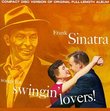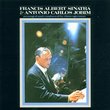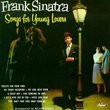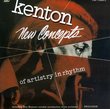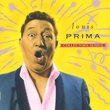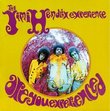| All Artists: Andrew Hill Title: Time Lines Members Wishing: 2 Total Copies: 0 Label: Blue Note Records Original Release Date: 1/1/2006 Re-Release Date: 2/21/2006 Genres: Jazz, Special Interest, Pop Styles: Avant Garde & Free Jazz, Modern Postbebop, Bebop Number of Discs: 1 SwapaCD Credits: 1 UPCs: 094633517028, 094635553321 |
Search - Andrew Hill :: Time Lines
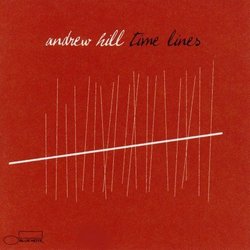 | Andrew Hill Time Lines Genres: Jazz, Special Interest, Pop
Time Lines marks the return to Blue Note of one of the label's great originals, with Hill retaining the edgy intensity that marked such '60s masterpieces as Black Fire and Judgment. As pianist, composer, and bandleader, Hi... more » |
Larger Image |
CD DetailsSynopsis
Amazon.com Time Lines marks the return to Blue Note of one of the label's great originals, with Hill retaining the edgy intensity that marked such '60s masterpieces as Black Fire and Judgment. As pianist, composer, and bandleader, Hill has a special talent for creating structural tensions that stimulate fresh improvisations. You hear it in the title track as saxophonist Greg Tardy and trumpeter Charles Tolliver (another veteran of the 1960s) weave through Hill's minefield of compound rhythms and dissonant chords to make their own powerful statements. Tardy's mastery of clarinet and bass clarinet adds to Hill's rich palette of instrumental colors, while bassist John Hebert and drummer Eric McPherson contribute to the dynamic flow of polyrhythms. Whether it's the joyous playfulness of "Smooth," the taut and spiky "Ry Round 1," or the welling emotional depths of the solo piano version of "Malachi," every track bears the stamp of Hill's creativity and commitment. --Stuart Broomer Similarly Requested CDs
|
CD ReviewsA Modern Day Masterpiece Troy Collins | Lancaster, PA United States | 03/23/2006 (5 out of 5 stars) ""Time Lines" marks pianist and composer Andrew Hill's third association with the venerable Blue Note label. From 1963 to 1970 Blue Note released some of Hill's finest work, visionary albums that went on to influence an entire generation of forward-thinking improvisers. He returned briefly to Blue Note in 1989 to record two albums and is still performing. Now 68, his writing maintains the same unfettered expansiveness. Diagnosed with cancer in 2004, "Time Lines" is all the more impressive, not for Hill's encroaching mortality, but for his steadfastness in the face of it. There is optimism in the tone of this record, despite the inevitable. Sublimely adventurous and hauntingly lyrical, these new tunes contain the same oblique sophistication as Hill's seminal Blue Note recordings. Trumpeter Charles Tolliver, noticeably absent from the recording studio for well over a decade, joins Hill's youthful quartet. Hill and Tolliver were last heard together on the recently reissued 1968 recording "Dance of Death," which in part prompted this reunion. Drummer Eric McPherson, bassist John Hebert and multi-instrumentalist Greg Tardy constitute Hill's current working group. Though all three come from a younger generation, they obviously have Hill's music coursing through their veins. Andrew Hill's writing employs a notoriously elastic sense of time which has always been demanding of his side-men. Rarely laying down a basic backbeat or groove, Hebert and McPherson navigate an endlessly modulating and circuitous path through fractured tempos. Free of clichéd devices, their abstruse accompaniment recalls focused collective improvisation more than conventional time-keeping. Such an open-ended concept allows a great deal of interpretive freedom for Hebert and McPherson, who prove they are up to the task. Two takes of "Ry Round" aptly demonstrate Hill's idiosyncratic sensibility. The first version is reserved, ominous and brooding with brief shimmers of light. The second variation is quite different; same basic melody and similar rhythmic structure, but brighter, more lively, angular and edgy. The solos are more vivacious and expressive, the entire piece feels as though it could unravel at any moment. The album vacillates between these extremes of light and shadow. This is enabled by Hill's choice of exceptional side-men. Initially appearing with Andrew Hill's sextet on 2000's "Dusk" (Palmetto), Greg Tardy's instrumental doubling adds a variety of tonal colors to the quintet. His tenor is burly and muscular, and past the hard-bop phrasing of his earlier efforts. His stuttered, emotionally wrenching climax on the title track proves he's absorbed the full tenor lineage, from Rollins and Coltrane to Lovano and beyond. Even more prominent is his fluid bass clarinet work. Gurgling and bellowing on "Ry Round 2" while displaying mature lyricism on "For Emilio," its presence invokes Hill's brief association with Eric Dolphy, if only conceptually. His most surprising contribution is his prodigious clarinet playing. His woody tone adds a refreshingly earthy aspect, as demonstrated by his gentle statements on "Malachi." Conversely, his passionate virtuosity on "Smooth," the album's most frenetic and sprightly track, belies the notion of it as merely another instrument in his arsenal. Sharing the front-line with Tardy is legendary trumpeter Charles Tolliver. A seasoned stylist with a fat, buttery tone, his breathy, mellifluous statements on "Malachi" and "Whitsuntide" are as serene as his raspy, rugged solos on "For Emilio" and "Smooth" are assertive. Hill's singular phrasing and sophisticated attack embody all the hallmarks of a master deconstructionist. His genteel, almost pastoral touch on the solo piano version of "Malachi" is revealing in its stark emotionalism. Equally, his irrepressibly abstract excursions in both versions of "Ry Round 1 and 2" are wholly unpredictable. Fragmented in tempo, and harmonically craggy on the first version, his solo on the second variation is even more intractable, yet still curiously melodic. "Time Lines" proves Hill has lost none of his mettle in the ensuing decades. He deserves accolades for continuing to document a creative body of work that has never flagged in the face of commercial pressure or relative lack of economic opportunity. His life's-work is one of the key foundations of modern jazz. "Time Lines" is not merely a footnote, but a highlight to an already legendary discography. Highly recommended is not recommendation enough." ORIGINAL. Nathan Eliot | Hopkins, MN United States | 02/28/2006 (5 out of 5 stars) "About this time last year I listened to Andrew Hill for the first time on Point of Departure. Since then I've acquired Black Fire, Smokestack, Judgment, Andrew, Bobby Hutcherson's Dialogue, Dusk, and Beautiful Day. When I heard this was to be released, I picked it up the day it was out a week ago today. Timelines may be the most intriguing album I've heard... from any artist. At midnight, driving home from Cheapo I had to pull over to take in the achingly beautiful Malachi. I shut off the engine and listened to the rest with an open mind. I've listened all the way through it three times since. It's facinating to me how free sounding this group is with such complex forms. This is also my favorite playing of Greg Tardy, especially on clarinet. Hill has always presented his music with sincerity a quality I admire most about him. He never seems to be emulating someone else or is "going for" this or that. I hope he continues playing and recording music. Andrew, play St. Paul, Artist's Quarter. I'll round up a crowd. -Nathan" His finest achievement Jan P. Dennis | Monument, CO USA | 04/13/2006 (5 out of 5 stars) "I'm struck by the sheer quirky musicality of this disc. No, it doesn't proceed by conventional jazz vocabularies; rather, it unfolds its own idiosyncratic tonal, rhythmic, and song-building expressions--ones very congenial, at least to these ears. But, perhaps off-putting to those anticipating more normal musical assays.
Featuring an ordinary small-group jazz ensemble (piano, bass, drums, reeds, and trumpet)--no outre world-jazz instrumental aggregation here--the tonal palate astounds, especially, one supposes, because of Greg Tardy's shocking range of sounds achieved from rather conventional reeds (tenor sax, clarinet, and bass clarinet), but also due in large part to Charles Tolliver's eccentric trumpet stylings and Eric McPherson's amazing drum conception. (Speaking of the latter, he's played with lots of top names like Terence Blanchard, Kenny Garrett, and the SF Jazz Collective.) The compositions, all Hill's, also greatly contribute to the weird though (in my view, at least) awesome vibe conjured here. It's not that they have no connection to standard jazz forms; it's just that their departure points so radically alter customary moves that the unprepared or uninitiated may fail to comprehend what transpires. My advice: jettison expectations and go with the flow. I think you'll not only be greatly rewarded, but also in the process have your musical horizons generously expanded." |

 Track Listings (8) - Disc #1
Track Listings (8) - Disc #1